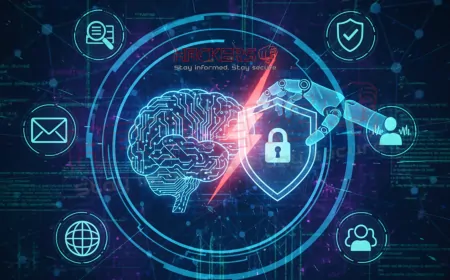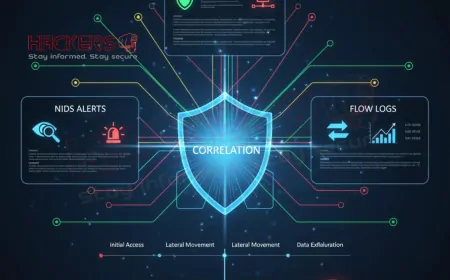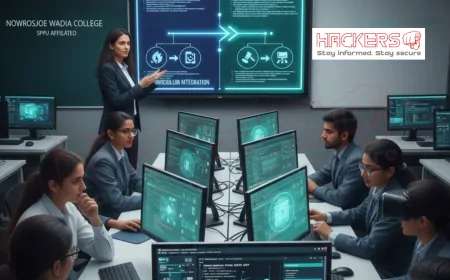How Cyber Security Labs in Pune Colleges Provide Practical Training (Tools, Projects etc.)
Picture this: a student huddled over a computer in a bustling lab, simulating a cyber attack to learn how to defend against it. In Pune, a city buzzing with tech innovation and education, such scenes are common in college cyber security programs. As cyber threats grow more sophisticated, theoretical knowledge alone is not enough. Practical training through labs, tools, and projects is key to building skilled professionals. This blog explores how colleges in Pune are leading the way in hands-on cyber security education. We'll look at specific programs, the tools they use, the projects students tackle, and why this approach matters. If you're a beginner curious about the field or a student deciding on a college, read on to see how these labs turn concepts into real-world skills.

Table of Contents
- Pune as an Education Hub for Cyber Security
- The Importance of Practical Training in Cyber Security
- Cyber Security Labs at MIT World Peace University
- Practical Training at Indira College of Commerce and Science
- Hands-On Learning at Pimpri Chinchwad University
- Labs and Projects at DY Patil University (via Seamedu)
- Common Tools Used in Pune College Labs
- Typical Projects in Cyber Security Programs
- Benefits of Hands-On Training
- Comparison Table of Programs
- Conclusion
- Frequently Asked Questions
Pune as an Education Hub for Cyber Security
Pune has long been known as the Oxford of the East, with its mix of historic colleges and modern universities. In recent years, it has become a hotspot for tech education, especially in cyber security. The city's IT parks and startups create a perfect environment for students to learn and apply skills. Colleges here partner with industries to keep curricula up to date. Programs like B.Sc. and B.Tech in cyber security focus on practical aspects to meet job market needs. With threats like hacking and data breaches on the rise, these institutions prepare students to protect digital assets. Labs in these colleges simulate real scenarios, helping beginners grasp concepts without overwhelming them.
The growth of cyber security education in Pune reflects global trends. According to reports, the field is expected to see millions of job openings worldwide by 2025. Local colleges respond by investing in facilities and expert faculty. This setup not only teaches theory but also builds confidence through practice. Students benefit from Pune's ecosystem, attending workshops and internships nearby. Overall, the city's colleges make cyber security accessible and exciting for newcomers.
The Importance of Practical Training in Cyber Security
Cyber security is about more than reading books: it's about doing. Practical training lets students apply ideas in safe settings. For example, learning to spot a virus is one thing, but removing it from a simulated network is another. This hands-on approach helps beginners understand how threats work and how to stop them. Without it, graduates might struggle in jobs where quick thinking is needed.
Labs provide tools to experiment, while projects encourage teamwork and problem-solving. These elements explain complex terms like encryption, which is a way to scramble data so only authorized people can read it. Practical work makes such concepts clear. It also prepares students for certifications that employers value. In Pune, colleges emphasize this to bridge the gap between classroom and career. As a result, students gain skills that make them stand out in interviews.
Cyber Security Labs at MIT World Peace University
MIT World Peace University offers a B.Tech in Computer Science and Engineering with a focus on Cyber Security and Forensics. This four-year program blends theory with practice, using state-of-the-art labs. The labs are equipped with professional tools for digital forensics and security tasks. Students spend time here learning to handle real-world scenarios, like investigating cyber incidents.
Practical training includes workshops, internships, and case studies. Faculty guide students through simulations of attacks and defenses. This helps beginners build skills step by step. Tools like Python for programming and software for vulnerability testing are common. Projects range from mini ones in labs to capstone work in later semesters. For instance, students might design a secure network or analyze malware. These activities ensure graduates are ready for roles like security analysts.
The university's partnerships with industries provide extra opportunities, such as guest lectures and visits. This exposure shows how lab skills apply in jobs. Overall, MIT WPU's approach makes cyber security practical and engaging for all levels.
Practical Training at Indira College of Commerce and Science
At Indira College of Commerce and Science, the B.Sc. in Cyber Security is a three-year program with an optional honors year. It stresses hands-on learning through dedicated labs. The cyber security lab has advanced devices for forensics, like tools to examine hard drives and cloud data. Students learn to preserve evidence and prevent tampering.
Practical sessions cover topics like ethical hacking and malware analysis. Beginners start with basics, such as using Linux commands, and advance to complex tasks. Tools include C programming for building secure code and software for penetration testing, which is checking systems for weaknesses. Projects include field work on cyber crimes and internships with real projects. For example, a student might investigate a simulated data breach.
The college adds value with industry visits and certifications, like those from Microsoft. This mix prepares students for careers in security consulting or forensics. The focus on real-world cases helps even novices feel confident.
Hands-On Learning at Pimpri Chinchwad University
Pimpri Chinchwad University provides a B.Sc. in Computer Science and Cyber Security over three or four years. The program integrates labs from the start. Labs focus on programming, networks, and security, with sessions on tools like Python and Linux.
Practical training involves simulations and internships. Students practice ethical hacking, which is legally testing systems for vulnerabilities. Tools such as those for blockchain and penetration testing are taught. Projects include mini ones using Python or testing tools, leading to major research in the final year. Beginners appreciate the gradual build-up, from basic coding to advanced threat analysis.
The university encourages teamwork through group projects and seminars. This setup mirrors job environments, helping students develop soft skills too. Graduates often pursue roles in network security or incident response.
Labs and Projects at DY Patil University (via Seamedu)
DY Patil University, through Seamedu, offers a BCA in Cyber Security and Forensics. This program uses virtual labs for safe practice. Labs simulate threats, allowing students to experiment without risks.
Practical training includes hackathons and community service projects. Tools like Wireshark for network analysis, Kali Linux for testing, and Metasploit for simulations are key. These are explained simply: Wireshark watches data flow, Kali is a toolkit for security tasks. Projects cover malware analysis and major industry-based work in later semesters. For beginners, starting with basics like firewalls builds to advanced AI in defense.
The program includes internships and certifications from Cisco. This hands-on focus prepares students for jobs like SOC analysts, who monitor security operations.
Common Tools Used in Pune College Labs
Across Pune colleges, certain tools appear often in cyber security labs. These help students practice safely. For example, Kali Linux is a free operating system packed with security tools. It's like a Swiss army knife for testing systems. Beginners can use it to scan for weaknesses without prior coding knowledge.
Wireshark captures network traffic, showing how data moves. This teaches about threats like eavesdropping. Metasploit helps simulate attacks to understand defenses. Programming tools like Python allow scripting for automation, such as checking passwords. Forensics software examines digital evidence, like recovering deleted files.
Colleges also use virtual machines, which are simulated computers, to test without harming real systems. These tools are chosen for their industry relevance, helping students transition to jobs smoothly.
Typical Projects in Cyber Security Programs
Projects in Pune colleges vary but share goals: apply knowledge and solve problems. A common one is building a secure network. Students set up firewalls, which block unauthorized access, and test them against simulated attacks.
Another is malware analysis: dissecting harmful software to see how it works. This might involve using tools to reverse engineer code. Forensics projects simulate crime scenes, where students collect evidence from devices. Capstone projects often involve real-world issues, like securing IoT devices, which are smart gadgets connected online.
Group projects encourage collaboration, such as developing a security policy for a fictional company. These experiences teach time management and creativity, essential for beginners entering the field.
Benefits of Hands-On Training
Hands-on training offers many advantages. It boosts retention: doing something sticks better than reading. For cyber security, this means quicker responses in real threats. It also builds confidence, as students see their skills work.
Employers prefer graduates with practical experience, leading to better job prospects. In Pune, ties to IT firms mean internships turn into offers. Training fosters ethical thinking, crucial in a field handling sensitive data. Overall, it makes learning fun and relevant, attracting more beginners to cyber security.
Comparison Table of Programs
To help compare, here's a table of key features from the discussed colleges.
| College | Program | Key Labs | Main Tools | Notable Projects |
|---|---|---|---|---|
| MIT WPU | B.Tech CSE Cyber Security & Forensics | Digital Forensics, Vulnerability Testing | Python, Blockchain Software | Capstone Project, Internships |
| ICCS | B.Sc. Cyber Security | Cyber Security Lab, Electronics Lab | C Programming, VAPT Tools | Field Projects on Cyber Crimes |
| PCU | B.Sc. CS Cyber Security | Operating Systems Lab, Malware Analysis | Python, Penetration Testing Tools | Mini Projects, Major Research |
| DY Patil (Seamedu) | BCA Cyber Security & Forensics | Virtual Labs, AI-Driven Labs | Wireshark, Kali Linux, Metasploit | Hackathons, Major Industry Projects |
Conclusion
Pune colleges excel in providing practical cyber security training through innovative labs, tools, and projects. From MIT WPU's forensics focus to DY Patil's virtual simulations, these programs equip students with essential skills. Common tools like Kali Linux and projects like malware analysis prepare beginners for real challenges. The benefits, including better job readiness and confidence, make this approach vital. If you're interested in cyber security, consider Pune's offerings for a strong start.
Frequently Asked Questions
What is practical training in cyber security?
It involves hands-on activities like simulations and lab work to apply theoretical knowledge.
Why is Pune good for cyber security education?
Pune has many colleges with industry ties and modern facilities for practical learning.
What tools do beginners use in labs?
Tools like Kali Linux and Wireshark are common, explained step by step.
Are projects part of all programs?
Yes, most include mini and major projects to build skills.
What is ethical hacking?
It's legally testing systems for vulnerabilities to improve security.
Do colleges offer internships?
Many do, providing real-world experience through partnerships.
What is digital forensics?
It's investigating digital evidence after cyber incidents.
Can beginners join these programs?
Yes, they start with basics and build up gradually.
What certifications are available?
Options like Cisco or Microsoft are often included.
How long are these programs?
Typically three to four years for undergraduate degrees.
What jobs can graduates get?
Roles like security analysts or forensics experts.
Are labs equipped with modern tools?
Yes, including software for testing and analysis.
What is penetration testing?
Simulating attacks to find system weaknesses.
Do projects involve teamwork?
Often yes, to mimic professional environments.
Is math needed for cyber security?
Basic math helps, but programs teach what's required.
What is malware analysis?
Studying harmful software to understand and counter it.
Are there virtual labs?
Some colleges use them for safe practice.
How do colleges update curricula?
Through industry input to match current threats.
What is blockchain in cyber security?
A secure way to store data, taught in some programs.
Why choose hands-on training?
It prepares you better for real jobs than theory alone.
What's Your Reaction?










































































